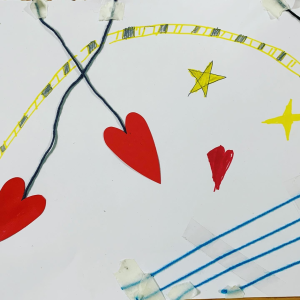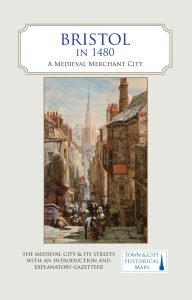By Dr Rehana Ahmed, Dr Aleena Din, Professor Sumita Mukherjee, Dr Maya Parmar and Dr Florian Stadtler
This South Asian Heritage Month, the Remaking Britain team is delighted to launch their new online learning resource. Packed full of digitised archive extracts, interactive maps and new oral history recordings, the resource explores the myriad ways in which South Asians have contributed to change in Britain since the 1830s. The team first introduced us to their AHRC project in August 2023, and it’s wonderful to see it now come to fruition.
We’re excited to launch the new web resource South Asian Britain: Connecting Histories from the project Remaking Britain: South Asian Connections and Networks, 1830s to the present. ‘Remaking Britain’ is an AHRC-funded research project led by the University of Bristol (Sumita Mukherjee, PI and Florian Stadtler, Co-I) and Queen Mary University of London (Rehana Ahmed, Co-I) in partnership with the British Library. Aleena Din (Bristol) and Maya Parmar (QMUL) are researchers on the project. The team worked closely with the Bristol Research IT team, led by Tessa Alexander, to create this new, freely accessible web resource, which has been launched to mark South Asian Heritage Month.

South Asian Britain: Connecting Histories reveals and uncovers how South Asians in the United Kingdom have shaped British life. It includes over 750 entries and over 30 new oral histories, with interactive network diagrams and location maps, highlighting the multilayered and interconnected histories of South Asians in Britain from the 1830s to the present day.
South Asian migration to the United Kingdom goes back to at least 1614, and by the 1830s a diverse range of South Asians were beginning to move across the four nations. Engaging with themes such as multiple migrations, women’s activism, religion, family life, arts and culture, and politics, South Asian Britain: Connecting Histories showcases wide-ranging people, organizations and events, including underrepresented communities such as people who identify as LGBTQIA+ as well as those from working-class or caste-oppressed communities.
In this blog post, the team spotlight diverse histories that highlight the embedded presence of South Asians across the United Kingdom.
Rammohun Roy (1772-1833), prominent social and religious reformer

Rammohun Roy was one of the founders of the Brahmo Samaj, a Unitarian Sect that began in 1828, and was a keen proponent of women’s rights. In 1831, Roy visited Britain and struck up a friendship with the Unitarian Minister Dr Lant Carpenter of Bristol (the father of Mary Carpenter). On 19 September 1833, Roy is likely to have contracted meningitis and died on 27 September at Stapleton Grove.
In 1843, a mausoleum was built around Roy’s tomb at Arnos Vale Cemetery in Bristol. A statue of Roy made by Niranjan Pradhan in 1995 can be found on Bristol’s College Green, in front of the Central Library, and a bust of Roy, made on the day of his death, sits inside Bristol’s City Hall.
Visit the South Asian Britain entry for Rammohun Roy to find out more about his story.
Rosheen Khan (2003-), grassroots football referee in Wales

Rosheen Khan is a grassroots football referee and the first Muslim female referee in Wales. Alongside her sister Eleeza Khan, Rosheen leads a female-only football team in Grangetown (Cardiff) with Foundation 4 Sports. Rosheen was interviewed by the Remaking Britain project for the South Asian Britain: Connecting Histories digital resource. Clips of her interview are available on the website, while the full interviews are available at the British Library under collection reference C2047.
Visit the South Asian Britain entry for Rosheen Khan to find out more about her story, and listen to her interviews with the project team.
Abdul Karim (1920-1993), travelling salesman in the Hebrides

Abdul Karim, also known as Johnny, was a pedlar who worked across the Hebrides from the 1940s selling clothes door to door. He lived with his wife and children in Glasgow and continued his work as a pedlar in the Hebrides for at least thirty-three years.
Karim’s experiences as a pedlar in the Hebrides, as well as his customers’ feelings about his work, were featured in a BBC documentary titled ‘They Call Me Johnny’ (1982).
Visit the South Asian Britain entry for Abdul Karim to find out more about his story and watch the documentary.
Samaj in’a Babylon (1976-77)
In 1976, the educator and activist Dina Abbott founded the newspaper ‘Samaj in’a Babylon’. The newspaper was run by a group of people from the Caribbean and South Asia. The title of the newspaper merged Rastafarianism and reggae culture with South Asian languages, and included English and Urdu language news articles, as well as the use of anglicized Urdu. Abbott and her collaborators would often travel between Nottingham and Birmingham to develop the paper.
The articles covered a range of topics, including a front cover story in support of the Grunwick Strikers, news for diasporic communities, critiques of right-wing fascist politicians, the trial of the Handsworth 28 and the effects of the Race Relations Act 1976.
Visit the South Asian Britain entry for Samaj in’a Babylon to find out more about the newspaper.

Sumra Family
Among the first families to settle in Northern Ireland was the Sumra Family, who have lived in Northern Ireland since at least the 1930s. The first of the family to migrate was Fakir Chand Sumra, also known as Paddy Sumra, who set up a clothing business in Omagh in 1937. He was followed by his younger brother, Ghirdhari, and their wives and children all travelled to Londonderry in 1953. Ghirdhari Lal Sumra founded Sumra House in the early 1970s, a clothing store located on Strand Road.
Visit the South Asian Britain entry for the Sumra Family to find out more.

We still have further features on the site to roll out over the coming months. This includes continued development of learning resources with the British Library, who have been an incredibly supportive partner while managing the effects of a cyber-attack from October 2023. The whole project has been a great team effort with collaboration between the University of Bristol, Queen Mary University of London and the British Library. We hope everyone enjoys the new resource and please do get in contact with the project team with any feedback or questions.
To find out more about the South Asian Britain learning resource, please contact remaking-britain-project@bristol.ac.uk. You can also stay up to date through the project’s Facebook, Twitter/X and Bluesky accounts.
A special event to celebrate the launch of the South Asian Britain learning resource will also be held on Tuesday 22 July at the Chapter Arts Centre in Cardiff. Further details can be found in the press release associated with this announcement.














 We trialled the first draft of Rex’s script at the University of Bristol’s
We trialled the first draft of Rex’s script at the University of Bristol’s 





